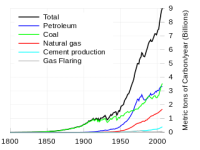Well, the arctic is rather moot - its effectively a big floating iceberg, so as the ice melts/refreezes on a seasonal basis it doesnt really affect sea levels (its like an ice cube melting in a glass). The antarctic, howevere, is a couple of thousand metres oif ice sat on top of rock. If it melts into the sea we're screwed. It wont happen in our lifetimes, but over the next few hundred years?
Your second question isnt stupid - there have indeed been big climate shifts in the past, long before we started pumping CO2 into the atmosphere. The difference here is that while these changes happended over hundreds of thousands of years, the changes we're seeing now will happen over the course of decades. It was considerably easier for prehistoric hunter-gatherers to simply migrate elsewhere over a few generations than it would be to move London to higher ground by 2100.



